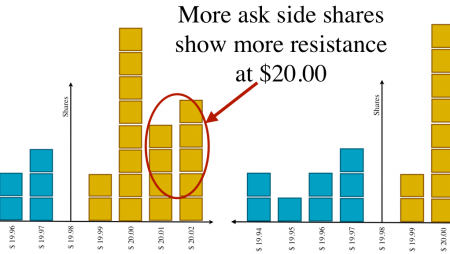The Ultimate Guide to Scalping

One of the top questions scalpers have is whether their broker allows scalping. There is constant anxiety among scalpers that if their profits swell to significant amounts, they will get blacklisted. But the real question is can you scalp trade without your broker noticing? Theoretically, yes, but it’s not quite that simple in practice. Lets take a closer look at the risks versus reward.
A Risky Business
Your biggest concern when scalping may not actually be your biggest hurdle. That fear of course, is your broker finding out you’re scalping and cancelling your withdrawal privileges. Poof! The “million dollars” you successfully scalped is now stuck in limbo.
However, the reality isn’t quite so harsh. Your broker may do one of two things depending on the type of spread. If you are paying a variable spread, they may widen the spread. Or, if it’s a fixed spread, be prepared for hidden slippage every time you close a trade.
While slippage is not usually intentional, it is almost impossible to tell. After all, slippage by a few pips here and there or widening the spreads a bit is common practice. It’s also quite legal for a broker to do and will explain why you experience some minor issues that bite into your profits.
So, if you are scalping on large amounts, you probably won’t know if you’ve been “filtered” as a scalper by the system. Sometimes, though, it might be worthwhile to try scalping under the radar.
Avoiding Detection
Most brokers look at trader duration to try to filter for scalpers. If you place trades at very short intervals (less than 2 minutes, say) you will probably be identified as a scalper. But what if you could fool your broker into believing you trade on longer durations? That way, you could better avoid detection when brokers filter using this metric.
How would you do that? Well, by opening two accounts, each cancelling out the other.
Let’s say you have one account with one broker (Broker A) and another account with another broker (Broker B). Now you’ve opened a trade on the EUR/USD for +100 lots long with Broker A. But you trade by the minutes and after 2 minutes you want to close it. So what do you do?
You open a short position with Broker B. The two trades will cancel each other out. Essentially, you have “closed” your first position with Broker A. You can then close the two positions at the end of the day when your duration is a few hours.
And the result? In each account, your average duration is several hours. And neither Broker A nor Broker B has a clue that you are a scalper that actually holds trades by the minute.
Getting it Right
No matter how careful you are, there are still three problems you might face.
1) You might end up paying double the spread.
2) You might find it hard to open the opposite position in Broker B quickly enough.
3) You have less margin as your money is now divided between two accounts.
Finding a way to navigate these challenges is important to any scalper. As you might have expected, there’s no getting around the third problem. However, there are ways to manage the other two.
Here’s how they could work to your advantage:
If you open an account with brokers that have variable spreads, often the bid of one will overlap the other’s ask. It would help if you timed closing your trades to minimise the difference between the spreads. The best way to do this is with a trading algo. As I said previously, this is not a simple thing to implement. For those familiar with the concept of triangular arbitrage, this method might be simpler for you to grasp.
Nonetheless, a relatively simple algo can compare price quotes of the two and decide when to close. Of course, as you might have figured, this will not work well if your broker has fixed spreads. Moreover, brokers with fixed spreads do tend to have slippage.
In these cases, this may not be worth the effort. Unfortunately, the reality is that in most cases, it’s not. Naturally, there are exceptions to every rule that could make this worthwhile, especially if you’ve got a very good scalping strategy but suffer from slippage or widening spreads.


